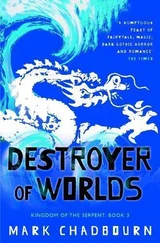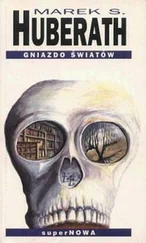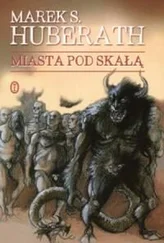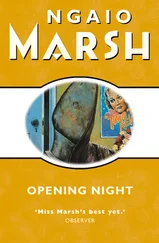Babcock allowed me access to the division’s computer. That is, to the library of programs available only to the sharks. Though I am a lowly graduate student!
In less than three-quarters of an hour I had the formula for length of time spent in a Land.
The number of years spent in a Land = 140/(N + 1) 2.
With good accuracy this accounts for the time one must live in each Land, for each degree of nested world. For us, it’s thirty-five years. As it should be in normal reality!
But in the Superworlds?
In Superworld Zero you get 140 years, which isn’t ridiculous, because if you spend your entire life in one Land, then the duration of stay must equal your lifespan. And whoever heard of anyone living longer?
In Superworld Minus One the duration of stay is infinite.
And yet two ones sit at the beginning of Bonacci Junior’s series—so that the 2 that follows can follow. I can’t dismiss the first 1.
Therefore I repeat my analysis. Maybe I’ll have better luck the second time. The number of Significant Names comes to 1/12, but a Significant Name cannot have a fractional number. Do we then approximate, going to the nearest integer? That would mean zero Names, no Name, for the Inhabitant of Superworld Minus One. This is pure speculation, but I’ll write down what I think.
First: A Significant Name gives the path that death will take toward an inhabitant of a world. In Superworld Zero, the name is one: “You must die.” Or, in other words, the inhabitant is mortal. The absence of a Name for the Inhabitant of Superworld Minus One means that he is not mortal, since no Name hangs over his head. Which tells us nothing about whether or not he was born or has always existed. I write “Inhabitant” with a capital letter and not “inhabitants,” and this conclusion too I owe to a sleepless night.
Second: The number of Lands in which the Inhabitant of Superworld Minus One must live equals zero. I reasoned this out in the same way. Normally, we live in four Lands in turn; only death frees us from that obligation. Each inhabitant of Superworld Zero can stay in the whole world at any age, unconstrained by the obligation to travel to any Land, which is a subworld, because there are no subworlds in Superworld Zero. But the number of required Lands in Superworld Minus One equals zero, and therefore its Inhabitant does not necessarily dwell in the world; He may dwell outside it. This goes hand in hand with the infinite time passed in a Land.
(Zero Lands may suggest that the Reader of Superworld Minus One Himself fills the Universe, is the Universe. But no, surely a universe can be no more than a passive collection of objects…)
I can’t figure out why the author made the number of Significant Names fractional but also greater than zero. Could it be that the Reader of Superworld Minus One, though immortal, had some brush with death?
To the card was glued one more piece of card, scribbled over. Gavein squinted to decipher the tiny scrawl:
Final conclusion: In both Superworlds there is only one version of the book that contains nested worlds. A solid trunk for the Tree! From this it follows that the world in which I live has no nested counterpart.
Gary was informed that Daphne Casali perished in a run. He had lost his only witness. Cukurca could testify only to the beatings Gary had received; the rest he didn’t believe. All the documentation that had been gathered to write the article was missing, and the manuscript had gone up in smoke. Eight bullets were found in the apartment, two on the stairs. All had come from Gary’s pistol.
The trial proceeded in a predictable way. The court ruled that Gary had fired all the shots. His excellent aim? He had developed that on the police firing range. Balloch’s testimony there was decisive. The newspaper editor-in-chief stated that Daphne had submitted no article, though he did remember a conversation about it some time ago and her proposal to write it. He had never had a temporary substitute at work, he said.
Even Gary’s lawyer doubted the existence of the lost manuscript. But manuscript or no manuscript, Gary had taken the law into his own hands.
He was found guilty of five counts of murder in the highest degree. The court gave no credence to the story that Gary had been beaten by his neighbors. There could be but one verdict: five consecutive life sentences. He would travel to Tolz after one sentence was served, by prison transport after he had served his fifteen years, six months, and twenty days. His possessions were all auctioned off; the money from their sale would cover some of the cost of his punishment. The loss of his possessions meant that he would have no means to appeal. The fivefold life sentence meant that he would sit in prison for the remainder of his days. Any mitigation of his punishment could do no more than reduce the number of his life sentences.
In the city jail he was given a double cell. It wasn’t bad. When he put the stool on the table and stood on it, he could see, through chinks in the rusty metal blinds, parts of the street, a miserable little lawn, a tree with a grate around it, and occasionally a pedestrian. If he was lucky, the pedestrian would be a woman.
His cellmate was a character called Humpty who had done time before. By two months they had discussed, in full, everything there was for them to discuss. Humpty was an income tax evader. He had received the minimum sentence—that is, to the day of his departure—which for him came to three years. In Tolz he could begin a new life. For income tax crime you didn’t lose your possessions.
But one day Humpty said something new:
“You were set up.”
It was a hot day and stifling in the cell. Humpty was fat. He sweat like a pig, panted, but never stopped eating. For a small bribe the guards brought him extra food.
Gary perked up his ears.
“Here’s how they did it,” Humpty went on. “The beatings you got were staged. You never saw your attackers’ faces.”
“Not with the stockings they wore,” said Gary. He was chewing a crust of black bread.
“Exactly. And they used names so you would think they were the Tunics.”
Gary nodded but wasn’t convinced.
“You left the door open when you barged in on the Tunics. The other guys fired from the corridor behind you.”
“The bullets were from my gun.”
“The bullets were from the same kind of gun. The Lupar has a modular barrel. They fired and then switched the barrels. You fired only once, at Eby. That was the missing bullet. After all the killing, when you were still in a daze, one of them finished Eby off.”
“But what was Eby doing on the stairs?”
“Maybe he heard sounds of the fighting and was coming to help you.”
Proud of himself, Humpty wolfed down a hamburger. He had unpleasantly humid eyes. Ketchup dribbled from the corners of his mouth.
Gary stretched out on his bunk, hands behind his head. “To help me, you say. And I…” He was silent for a moment. Then he sat up, the shirt sticking to his sweaty back. “But why would they go to all that trouble? To put an unimportant guy out of the way? It makes no sense.”
Humpty opened a can of Lone Sail. He chugged down half of it, gasped for breath, and with his sleeve wiped the foam and ketchup from his mouth. He burped softly and began another hamburger.
“You were not an unimportant guy,” he said, knowing that he had Gary’s attention. He gave a wink, his gaze more humid than usual. He sipped slowly at the rest of the beer.
Gary sat forward. “Come one, Humpty, tell me. You can’t spend all day on that beer. Your hamburger will get cold.”
Читать дальше












